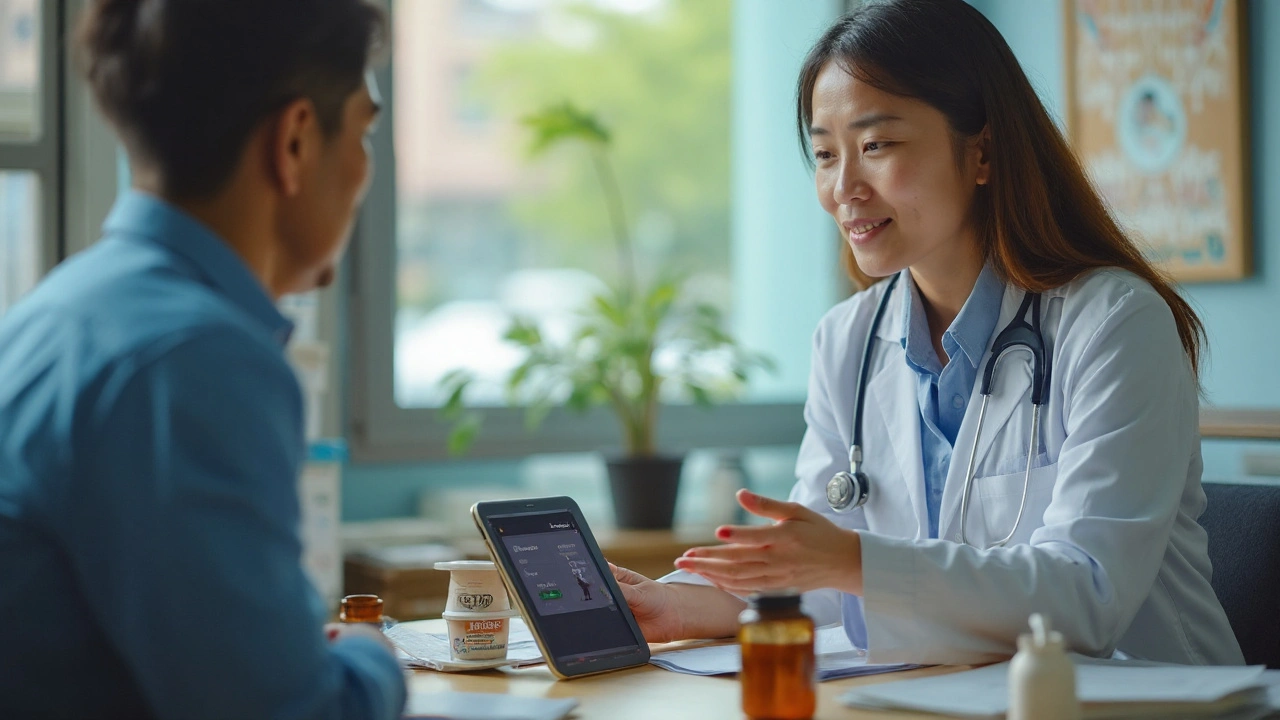Infectious Diarrhea Treatment: What Works Fast
Got the runs and suspect it’s from an infection? You’re not alone. Infectious diarrhea is common, but you don’t have to suffer through it. The good news is that most cases clear up in a few days with the right steps. Below you’ll find the basics you need to feel better fast and avoid complications.
Rehydrate and Rest
The number one rule is to replace the fluids you’re losing. Diarrhea flushes out water, electrolytes, and even some nutrients. Sip a clear broth, oral rehydration solution, or a sports drink diluted with water. Aim for small sips every 10‑15 minutes rather than chugging a large glass, which can upset your stomach more.
If you can keep liquids down, add a pinch of salt and a spoonful of sugar to a cup of water – that homemade ORS works just as well. Avoid coffee, alcohol, and sugary sodas because they can worsen dehydration.
When to Use Medication
Most viral infections (like norovirus) don’t need antibiotics. In fact, taking them can cause resistance and side effects. If you suspect a bacterial cause – think severe cramping, blood in the stool, or a fever over 101°F – see a doctor. They may prescribe a short course of antibiotics such as ciprofloxacin or azithromycin, depending on the bug.
For symptom relief, over‑the‑counter medicines like loperamide (Imodium) can slow the gut temporarily, but only use them if you have no fever or blood. They’re not for kids under two years old.
Foods to Eat (and Skip)
Stick to the BRAT diet – bananas, rice, applesauce, toast – for the first 24‑48 hours. These foods are bland, low‑fiber, and easy on the stomach. Gradually add boiled potatoes, plain oatmeal, and cooked carrots as you feel better.
Avoid dairy, greasy foods, spicy sauces, and raw fruits or veg that might irritate your gut. Probiotic‑rich foods like yogurt can help rebalance gut bacteria, but wait until the worst diarrhea subsides.
When to Call a Doctor
If you notice any of these, seek medical help right away: blood or black stool, a fever over 101°F, dehydration signs (dry mouth, dizziness, little urine), or diarrhea lasting more than three days without improvement.
Children, older adults, and people with weakened immune systems should be especially cautious. A quick doctor visit can prevent a serious infection from getting out of hand.
Prevent Future Episodes
Good hygiene is your best defense. Wash hands with soap for at least 20 seconds after using the bathroom and before eating. If you travel, stick to bottled or boiled water and avoid raw salads that may have been washed with contaminated water.
Vaccines are available for certain causes, like rotavirus in kids and cholera in high‑risk areas. Talk to your healthcare provider about whether you need them.
Following these steps helps you bounce back fast and cuts down the chance of another bout. Remember, staying hydrated and listening to your body are the cornerstones of effective infectious diarrhea treatment.
Ofloxacin for Gastrointestinal Infections: Uses, Effectiveness, Risks, and Safer Alternatives
When does Ofloxacin help with gut infections-and when is it a bad idea? Clear guidance on uses, dosing, safety, resistance, and better alternatives.

